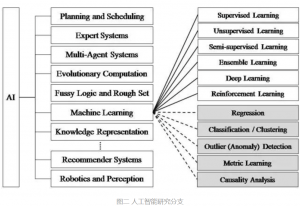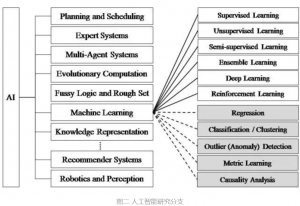- 首页
-
菜单
- 家园币
-
比特币
Financial Markets by TradingView
您正在使用一款已经过时的浏览器!部分功能不能正常使用。
- 主题发起人 gongbao
- 发布时间 2018-03-29
更多选项
导出主题(文本)大家好!
随手申请了几个计算机硕士课程,没想到居然资格合格了,想借宝地请教一下前辈们,该如何选择?我打算全职工作,学校那边保持1门课业余时间学习,一定需要去学校的场合比如实验和讨论再去,这个学校方面可以商量。反正我们这没有必须在规定时间(2年)内读完的说法,我也不用交学费。这三个计算机专业里,貌似机器学习比较热门,也是我比较感兴趣的。
除了3个计算机专业方向,还有我以前跳掉的工业工程与管理专业,本硕连读的课,还剩下4年的课程。那个课理论较多,有计算机,金融数学,环境发展,生物技术等几个方向可以选择。如果是这个,我比较倾向选择金融数学,因为一直觉得相对于编程,数学比较简单,自己在家学也相对容易搞定。个人感觉计算机加金融数学,应该能在银行,保险等公司谋得职位?
谢谢大家!!!
把各个program的教材找到,快速浏览一下,就知道学的是什么了。个人感觉要根据自己的目标就业方向选择。感觉Communication Systems专业性强,适用面比较窄,一般面向研究开发类公司。行业领先者可以用指头数。Machine Learning应用的领域应该更广泛,但也是面向专业研发类公司。这两个方向应该是专业牛人的首选。Software Engineering of Distributed Systems貌似适应面广一点。4面向金融,5不知到注重哪方面。完全是根据专业名称瞎猜,请不要参考。
最后编辑: 2018-03-31
Machine Learning这个可能跟你描述的不大一样,在我最近找毕业项目过程中,发现很多公司,无论规模,都在找人弄机器学习,说明这个应用范围还是挺广的,当然研发就另一码事。弄个tensorflow开发个应用软件,至少瑞典这边中小企业都挺热衷的把各个program的教材找到,快速浏览一下,就知道学的是什么了。个人感觉要根据自己的目标就业方向选择。感觉Communication Systems专业性强,适用面比较窄,一般面向研究开发类公司。行业领先者可以用指头数。Machine Learning应用的领域应该更广泛,但也是面向专业研发类公司。这两个方向应该是专业牛人的首选。Software Engineering of Distributed Systems貌似适应面广一点。4面向金融,5不知到注重哪方面。完全是根据专业名称瞎猜,请不要参考。
Machine Learning这个可能跟你描述的不大一样,在我最近找毕业项目过程中,发现很多公司,无论规模,都在找人弄机器学习,说明这个应用范围还是挺广的,当然研发就另一码事。弄个tensorflow开发个应用软件,至少瑞典这边中小企业都挺热衷的
我觉得你说的有道理,Machine Learning涉及的行业十分广泛。很多行业实施machine learning, 应该算是刚刚起步,需求应该十分强劲。现在Narrow AI十分火爆,大的科技公司都投入在应用广泛的领域,例如自动驾驶,物流,自动货物分拣之类。这些公司需要的是高端的人才,但也需要中级,初级一起工作才能形成一个团队。还有很多行业,大公司无暇顾及,或有行业门槛,比如医疗,矿业之类。从事Machine Learning,可以说进可攻,退可守。
个人觉得计算机对生产力的提高正在加速。十年前,AI还限于研究领域,辨别汽车牌号就很NB了,现在已经有越来越广泛的应用。下面的结构图,可以看出AI各个分支的相对关系。

附件
最后编辑: 2018-04-01
machine learning -> deep learning -> AI 是什么关系呀?我觉得你说的有道理,Machine Learning涉及的行业十分广泛。很多行业实施machine learning, 应该算是刚刚起步,需求应该十分强劲。现在Narrow AI十分火爆,大的科技公司都投入在应用广泛的领域,例如自动驾驶,物流,自动货物分拣之类。这些公司需要的是高端的人才,但也需要中级,初级一起工作才能形成一个团队。还有很多行业,大公司无暇顾及,或有行业门槛,比如医疗,矿业之类。从事Machine Learning,可以说进可攻,退可守。
个人觉得计算机对生产力的提高正在加速。十年前,AI还限于研究领域,辨别汽车牌号就很NB了,现在已经有越来越广泛的应用。下面的结构图,可以看出AI各个分支的相对关系。
浏览附件491401
machine learning -> deep learning -> AI 是什么关系呀?
我不是专业人士,理解肤浅. 但觉得在就业方面machine learning很有前景. 一般要计算机和业务领域的结合. 按鸡哥的说法,交叉学科. Read the following, I get the following points. 我看到了这些关键字: 算法,统计,数据分析,业务领域知识。业务领域知识就是计算机所要结合的专业。例如语音识别,OCR, Intrusion protection, Financial ect.
我一开始认为machine learning是如何把传统的工业控制同强大的计算机系统关联,强化已有的系统功能,或开拓新的功能。比如自动驾驶,和其他self adaptive的系统。看来理解的不全面。
世界上大多数程序员都是在做所谓的信息管理系统。就是数据库,录入,处理,输出之类。和算法,统计,数据分析没有一毛钱关系。加拿大的联邦政府花20多亿搞砸了的Phoenix系统,网络销售之类,SAP, 会计,以及现在我们用的论坛都是这类系统。这些是平庸的程序员的首选。
https://en.wikipedia.org/wiki/Machine_learning
Machine learning is a field of computer science that gives computer systems the ability to "learn" (i.e., progressively improve performance on a specific task) with data, without being explicitly programmed.[1]
The name machine learning was coined in 1959 by Arthur Samuel.[2] Evolved from the study of pattern recognition and computational learning theory in artificial intelligence,[3] machine learning explores the study and construction of algorithms that can learn from and make predictions on data[4] – such algorithms overcome following strictly static program instructions by making data-driven predictions or decisions,[5]:2 through building a model from sample inputs. Machine learning is employed in a range of computing tasks where designing and programming explicit algorithms with good performance is difficult or infeasible; example applications include email filtering, detection of network intruders or malicious insiders working towards a data breach,[6] optical character recognition (OCR),[7] learning to rank, and computer vision.
Machine learning is closely related to (and often overlaps with) computational statistics, which also focuses on prediction-making through the use of computers. It has strong ties to mathematical optimization, which delivers methods, theory and application domains to the field. Machine learning is sometimes conflated with data mining,[8] where the latter subfield focuses more on exploratory data analysis and is known as unsupervised learning.[5]:vii[9] Machine learning can also be unsupervised[10] and be used to learn and establish baseline behavioral profiles for various entities[11] and then used to find meaningful anomalies.
Within the field of data analytics, machine learning is a method used to devise complex models and algorithms that lend themselves to prediction; in commercial use, this is known as predictive analytics. These analytical models allow researchers, data scientists, engineers, and analysts to "produce reliable, repeatable decisions and results" and uncover "hidden insights" through learning from historical relationships and trends in the data.[12]
Effective machine learning is difficult because finding patterns is hard and often not enough training data are available; as a result, machine-learning programs often fail to deliver.[13][14]
上学期移动应用开发课,我和同学利用tensorflow做了个能用摄像头识别物体,并提供名称和wikipedia词条的应用,如果完善了,可以应用到垃圾分类场我不是专业人士,理解肤浅. 但觉得在就业方面machine learning很有前景. 一般要计算机和业务领域的结合. 按鸡哥的说法,交叉学科. Read the following, I get the following points. 我看到了这些关键字: 算法,统计,数据分析,业务领域知识。业务领域知识就是计算机所要结合的专业。例如语音识别,OCR, Intrusion protection, Financial ect.
我一开始认为machine learning是如何把传统的工业控制同强大的计算机系统关联,强化已有的系统功能,或开拓新的功能。比如自动驾驶,和其他self adaptive的系统。看来理解的不全面。
世界上大多数程序员都是在做所谓的信息管理系统。就是数据库,录入,处理,输出之类。和算法,统计,数据分析没有一毛钱关系。加拿大的联邦政府花20多亿搞砸了的Phoenix系统,网络销售之类,SAP, 会计,以及现在我们用的论坛都是这类系统。这些是平庸的程序员的首选。
https://en.wikipedia.org/wiki/Machine_learning
Machine learning is a field of computer science that gives computer systems the ability to "learn" (i.e., progressively improve performance on a specific task) with data, without being explicitly programmed.[1]
The name machine learning was coined in 1959 by Arthur Samuel.[2] Evolved from the study of pattern recognition and computational learning theory in artificial intelligence,[3] machine learning explores the study and construction of algorithms that can learn from and make predictions on data[4] – such algorithms overcome following strictly static program instructions by making data-driven predictions or decisions,[5]:2 through building a model from sample inputs. Machine learning is employed in a range of computing tasks where designing and programming explicit algorithms with good performance is difficult or infeasible; example applications include email filtering, detection of network intruders or malicious insiders working towards a data breach,[6] optical character recognition (OCR),[7] learning to rank, and computer vision.
Machine learning is closely related to (and often overlaps with) computational statistics, which also focuses on prediction-making through the use of computers. It has strong ties to mathematical optimization, which delivers methods, theory and application domains to the field. Machine learning is sometimes conflated with data mining,[8] where the latter subfield focuses more on exploratory data analysis and is known as unsupervised learning.[5]:vii[9] Machine learning can also be unsupervised[10] and be used to learn and establish baseline behavioral profiles for various entities[11] and then used to find meaningful anomalies.
Within the field of data analytics, machine learning is a method used to devise complex models and algorithms that lend themselves to prediction; in commercial use, this is known as predictive analytics. These analytical models allow researchers, data scientists, engineers, and analysts to "produce reliable, repeatable decisions and results" and uncover "hidden insights" through learning from historical relationships and trends in the data.[12]
Effective machine learning is difficult because finding patterns is hard and often not enough training data are available; as a result, machine-learning programs often fail to deliver.[13][14]
Similar threads
家园推荐黄页
家园币系统数据
- 家园币池子报价
- 0.0097加元
- 家园币最新成交价
- 0.0101加元
- 家园币总发行量
- 1101666.53家园币
- 加元现金总量
- 12044.05加元
- 家园币总成交量
- 4098206.67家园币
- 家园币总成交价值
- 384692.02加元
- 池子家园币总量
- 396336.11家园币
- 池子加元现金总量
- 3850.24加元
- 池子币总量
- 35214.19
- 1池子币现价
- 0.2187加元
- 池子家园币总手续费
- 5731.58JYB
- 池子加元总手续费
- 595.28加元
- 入池家园币年化收益率
- 0.45%
- 入池加元年化收益率
- 4.83%
- 微比特币最新报价
- 0.087982加元
- 毫以太币最新报价
- 4.30638加元
- 微比特币总量
- 0.354108BTC
- 毫以太币总量
- 0.219250ETH
- 家园币储备总净值
- 365,973.62加元
- 家园币比特币储备
- 3.4200BTC
- 家园币以太币储备
- 15.1ETH
- 比特币的加元报价
- 87,981.70加元
- 以太币的加元报价
- 4,306.38加元
- USDT的加元报价
- 1.36961加元
- 交易币种/月度交易量
- 手续费
- 家园币
- 0.1%(0.01%-1%)
- 加元交易对(比特币等)
- 1%-2%
- USDT交易对(比特币等)
- 0.1%-0.6%



